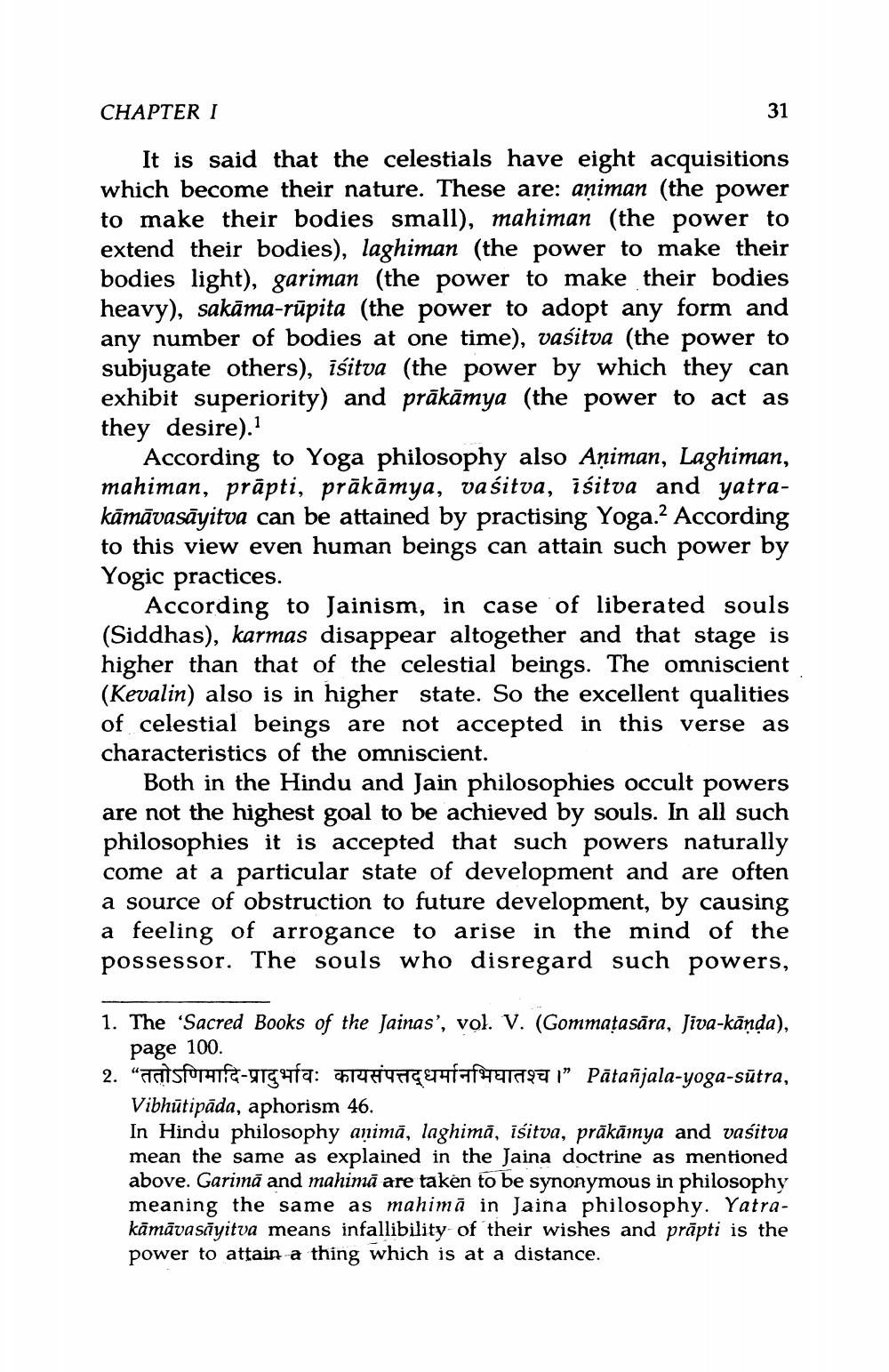________________
CHAPTER I
It is said that the celestials have eight acquisitions which become their nature. These are: aạiman (the power to make their bodies small), mahiman (the power to extend their bodies), laghiman (the power to make their bodies light), gariman (the power to make their bodies heavy), sakāma-rūpita (the power to adopt any form and any number of bodies at one time), vasitva (the power to subjugate others), išitva (the power by which they can exhibit superiority) and prākāmya (the power to act as they desire).
According to Yoga philosophy also Aạiman, Laghiman, mahiman, prāpti, prākāmya, vasitva, išitva and yatrakāmāvasāyitva can be attained by practising Yoga. According to this view even human beings can attain such power by Yogic practices.
According to Jainism, in case of liberated souls (Siddhas), karmas disappear altogether and that stage is higher than that of the celestial beings. The omniscient (Kevalin) also is in higher state. So the excellent qualities of celestial beings are not accepted in this verse as characteristics of the omniscient.
Both in the Hindu and Jain philosophies occult powers are not the highest goal to be achieved by souls. In all such philosophies it is accepted that such powers naturally come at a particular state of development and are often a source of obstruction to future development, by causing a feeling of arrogance to arise in the mind of the possessor. The souls who disregard such powers,
1. The 'Sacred Books of the Jainas', vol. V. (Gommațasāra, Jiva-kānda),
page 100. 2. “Tatsforhifa-yrgura: ARUHYGETHF=T991797 1” Pātañjala-yoga-sūtra,
Vibhūtipāda, aphorism 46. In Hindu philosophy animā, laghima, isitva, prākāinya and vasitva mean the same as explained in the Jaina doctrine as mentioned above. Garimā and mahimā are taken to be synonymous in philosophy meaning the same as mahima in Jaina philosophy. Yatrakāmāvasāyitva means infallibility of their wishes and prāpti is the power to attain a thing which is at a distance.




